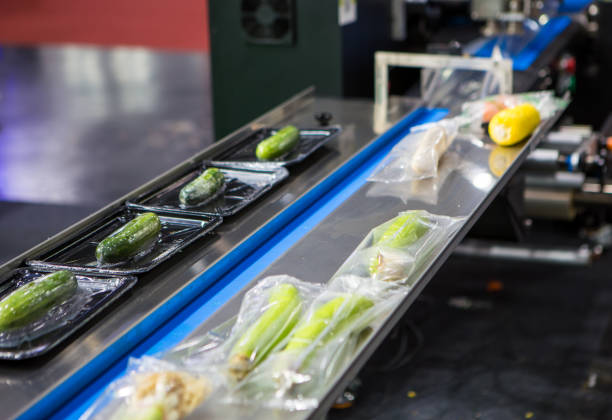business-services

July 22,2025 • 4 min read
Custom Food Packaging: A Comprehensive Guide

In today’s dynamic and highly competitive food industry, custom food packaging plays a pivotal role in defining a brand’s identity, enhancing product appeal, ensuring safety, and improving customer experience. No longer just a protective layer, packaging is now a powerful marketing tool and a reflection of a company’s values. Whether you're launching a new food product or revamping your existing line, investing in custom food packaging can offer significant benefits in terms of branding, functionality, and customer loyalty.
What Is Custom Food Packaging?
Custom food packaging refers to tailored packaging solutions designed specifically for a particular brand or product. Unlike generic or off-the-shelf options, custom packaging allows businesses to choose every detail—from materials, sizes, and shapes to colors, prints, labels, and finishing options—ensuring the packaging aligns perfectly with the brand and product requirements.
Benefits of Custom Food Packaging
1. Brand Differentiation
In a crowded market, standing out is critical. Custom food packaging allows businesses to showcase their unique identity through eye-catching designs, brand colors, logos, taglines, and storytelling elements. This visual distinction can significantly influence purchasing decisions.
2. Enhanced Consumer Experience
Well-designed packaging enhances the unboxing experience, especially for gourmet, artisanal, or luxury food items. Whether it’s the feel of the material or the ease of opening the package, consumers appreciate thoughtful design.
3. Improved Shelf Appeal
Custom packaging can make a product more attractive on the shelf. Retail success often depends on visual cues, and packaging that captures attention is more likely to result in a sale.
4. Sustainability and Eco-Friendly Options
As environmental concerns grow, custom food packaging can be tailored to include sustainable materials such as recycled paper, biodegradable plastics, or reusable containers, demonstrating a brand's commitment to environmental responsibility.
5. Product Protection and Safety
Food safety is paramount. Custom packaging ensures the right materials and designs are used to protect contents from contamination, spoilage, or damage during transit and storage.
6. Convenience and Functionality
Custom packaging can be designed for specific uses, such as resealable pouches, microwave-safe containers, or single-serving packs, which add value and convenience for the end-user.
Types of Custom Food Packaging
1. Boxes and Cartons
Ideal for baked goods, takeout meals, cereals, and confectioneries. Custom printed boxes can include window cutouts, inserts, and compartments.
2. Flexible Packaging (Pouches, Bags)
Great for snacks, powders, frozen foods, and liquids. Options include stand-up pouches, zip-locks, and vacuum-sealed bags.
3. Plastic Containers
Often used for salads, ready-to-eat meals, and deli products. These can be molded into unique shapes and are often stackable and tamper-evident.
4. Glass Jars and Bottles
Perfect for sauces, jams, honey, and beverages. Custom labels, caps, and embossing elevate the perceived quality.
5. Aluminum Foil and Trays
Common in frozen or heat-and-eat meals. Custom trays can be branded and offer excellent insulation.
6. Eco-Friendly Packaging
Compostable containers, biodegradable films, and paper-based wraps are increasingly popular for environmentally conscious brands.
Design Considerations for Custom Food Packaging
-
Visual Branding: Use consistent colors, fonts, and logos that reflect your brand.
-
Material Selection: Choose food-safe, durable, and compliant materials.
-
Size and Fit: Ensure the packaging is an exact fit for the product to avoid waste and enhance aesthetics.
-
Information Display: Clearly display nutritional info, ingredients, expiry date, and usage instructions.
-
Compliance: Follow food packaging regulations from health and safety authorities in your region.
Custom Food Packaging for Different Businesses
Restaurants and Takeaways
Branding your to-go boxes, cups, and napkins creates a memorable experience and encourages repeat business.
Bakeries and Confectioners
Custom cake boxes, cookie tins, and candy wrappers help elevate gift items and holiday specials.
Food Startups
Custom packaging helps new products gain credibility and attract attention in stores or online.
Catering Services
Elegant and secure packaging for meal deliveries or event catering can impress clients and uphold your professional image.
E-Commerce and Meal Kits
Shipping food requires packaging that preserves freshness while also providing brand storytelling and ease of use.
Trends in Custom Food Packaging
-
Minimalist Designs: Clean, simple layouts that reflect transparency and quality.
-
Sustainable Materials: Growth in compostable, recyclable, and plant-based packaging.
-
Interactive Packaging: QR codes and AR experiences embedded into packaging.
-
Personalization: Names, messages, or product variants for special occasions or targeted marketing.
-
Clear Windows: Let customers see the product to build trust and appeal.
Our Service010 Details
User Profile
- Full name
- Our Service010
- Email address
- ourservices010@gmail.com
- Join Date
- 2025-07-22
- State
- City
- Pincode
- Address
- Follow us on Facebook
- Follow us on Twitter
- Website Name
- Bio